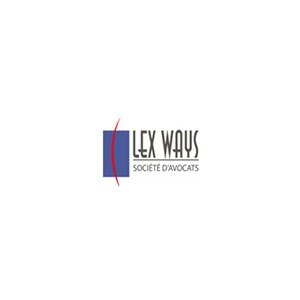Best Financial Services Regulation Lawyers in Cocody
Share your needs with us, get contacted by law firms.
Free. Takes 2 min.
List of the best lawyers in Cocody, Ivory Coast
About Financial Services Regulation Law in Cocody, Ivory Coast
Financial Services Regulation in Cocody, Ivory Coast, is guided by both national laws and international best practices to ensure the stability, integrity, and transparency of the financial sector. It encompasses a set of legal frameworks that oversee the functioning of financial institutions, including banks, insurance companies, and investment entities. The focus is on protecting consumers, preventing financial crimes, and ensuring that financial organizations operate in a safe and sound manner. The regulatory environment is dynamic, influenced by local economic conditions and global financial trends.
Why You May Need a Lawyer
Engaging with the financial services sector often comes with complex legal obligations and risks. Here are common situations where legal assistance might be needed:
- Compliance with regulatory requirements when starting a financial services business.
- Understanding and navigating through consumer protection laws.
- Resolving disputes with financial institutions or regulatory bodies.
- Dealing with allegations of financial misconduct or fraud.
- Advising on mergers, acquisitions, or corporate restructuring within the financial sector.
- Assisting with tax compliance and financial reporting obligations.
- Structuring and reviewing complex financial products and contracts.
Local Laws Overview
The legal framework governing financial services in Cocody, Ivory Coast, is heavily influenced by national regulatory authorities such as the Central Bank of West African States (BCEAO) and the Regional Council for Public Savings and Financial Markets (CREPMF). Key aspects include:
- Licensing and operational requirements for banks and financial institutions.
- Anti-money laundering (AML) and combating the financing of terrorism (CFT) regulations.
- Investment regulations to protect investors and maintain market integrity.
- Consumer protection laws that mandate fair lending practices and transparency.
- Corporate governance standards to uphold ethical management practices.
Frequently Asked Questions
What is the role of the BCEAO in financial regulation?
The BCEAO serves as the central bank for the eight West African countries in the Economic and Monetary Union, including Ivory Coast. It regulates monetary policies, ensures banking stability, and oversees banks' adherence to financial regulations.
Do I need a license to offer financial services in Cocody?
Yes, any entity wishing to provide financial services must obtain the appropriate licensing from the relevant national and regional regulatory bodies to operate legally in Cocody.
How do financial regulations protect consumers?
Financial regulations establish standards for fairness, transparency, and disclosure that financial institutions must follow, thus ensuring consumers are informed and protected from exploitative practices.
What are the penalties for non-compliance with financial regulations?
Penalties could include fines, suspension, or revocation of licenses, and in severe cases, criminal charges can be laid against the institution or its management.
How are financial disputes typically resolved?
Disputes may be resolved through mediation, arbitration, or litigation, depending on the nature of the dispute and the terms of any contractual agreement.
Does financial regulation cover insurance firms in Cocody?
Yes, insurance companies are also subject to regulations that require them to maintain sufficient reserves, adhere to fair practices, and ensure the protection of policyholders.
What measures are in place to prevent financial crimes?
Strict AML and CFT regulations require financial institutions to implement procedures for customer identification, record-keeping, and reporting suspicious activities to the authorities.
Is there special regulation for fintech companies?
Fintech firms must comply with existing financial services regulations concerning consumer protection, data privacy, and operational licensing, with additional oversight often evolving as the sector grows.
How do changes in international finance affect local regulations?
Local regulations are sometimes updated to align with international standards, such as Basel III for banking regulation, to ensure competitiveness and stability in the global market.
Can foreign financial institutions operate in Cocody?
Yes, but they must comply with local laws and regulations, including obtaining necessary licenses and demonstrating adherence to Ivorian financial standards.
Additional Resources
For those seeking more information or legal advice, consider the following resources:
- The Central Bank of West African States (BCEAO) for monetary regulations and banking standards.
- The Regional Council for Public Savings and Financial Markets (CREPMF) for investment and capital market regulations.
- Ministry of Economy and Finance in Ivory Coast for financial policy developments.
- Cocody Chamber of Commerce for business-related support and legal resources.
- Local law firms specializing in financial services regulation for personalized legal advice.
Next Steps
If you require legal assistance in financial services regulation, it is crucial to:
- Identify your specific legal needs and objectives within the financial services sector.
- Research and select a reputable law firm or legal consultant with expertise in financial services regulation.
- Gather relevant documentation and information about your case or legal issue.
- Consult with the legal expert to discuss your situation and explore available legal strategies.
- Ensure proper compliance with all recommendations to mitigate risks and protect your interests.
Taking these steps will help you navigate the complexities of financial services regulation in Cocody, Ivory Coast, effectively.
Lawzana helps you find the best lawyers and law firms in Cocody through a curated and pre-screened list of qualified legal professionals. Our platform offers rankings and detailed profiles of attorneys and law firms, allowing you to compare based on practice areas, including Financial Services Regulation, experience, and client feedback.
Each profile includes a description of the firm's areas of practice, client reviews, team members and partners, year of establishment, spoken languages, office locations, contact information, social media presence, and any published articles or resources. Most firms on our platform speak English and are experienced in both local and international legal matters.
Get a quote from top-rated law firms in Cocody, Ivory Coast — quickly, securely, and without unnecessary hassle.
Disclaimer:
The information provided on this page is for general informational purposes only and does not constitute legal advice. While we strive to ensure the accuracy and relevance of the content, legal information may change over time, and interpretations of the law can vary. You should always consult with a qualified legal professional for advice specific to your situation.
We disclaim all liability for actions taken or not taken based on the content of this page. If you believe any information is incorrect or outdated, please contact us, and we will review and update it where appropriate.












